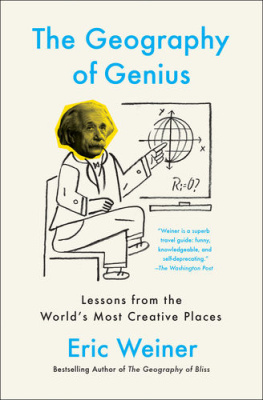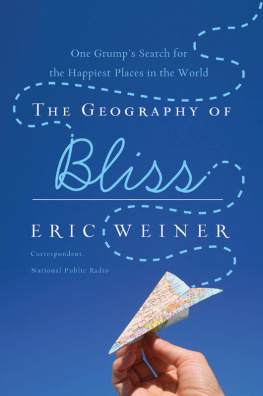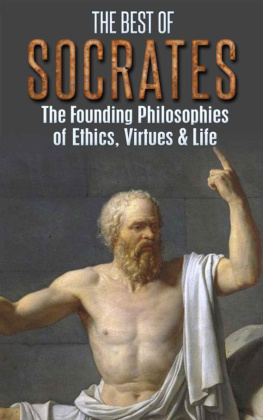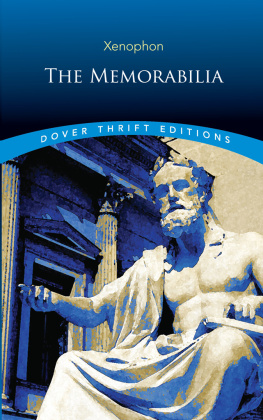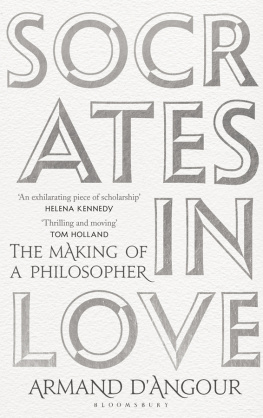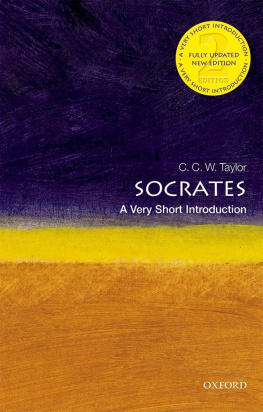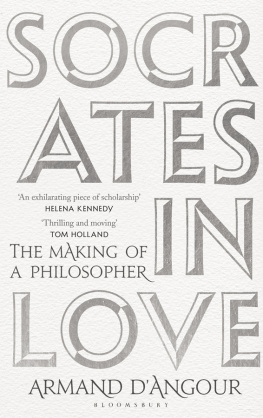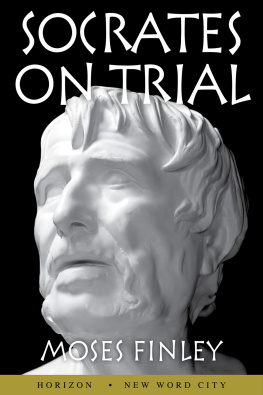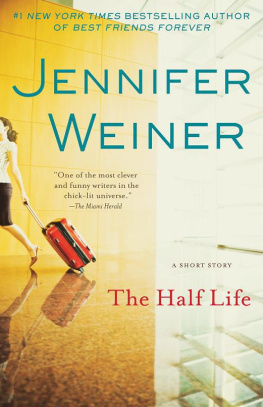Eric Weiner - The Socrates Express: In Search of Life Lessons from Dead Philosophers
Here you can read online Eric Weiner - The Socrates Express: In Search of Life Lessons from Dead Philosophers full text of the book (entire story) in english for free. Download pdf and epub, get meaning, cover and reviews about this ebook. year: 2020, publisher: Avid Reader Press / Simon & Schuster, genre: Art. Description of the work, (preface) as well as reviews are available. Best literature library LitArk.com created for fans of good reading and offers a wide selection of genres:
Romance novel
Science fiction
Adventure
Detective
Science
History
Home and family
Prose
Art
Politics
Computer
Non-fiction
Religion
Business
Children
Humor
Choose a favorite category and find really read worthwhile books. Enjoy immersion in the world of imagination, feel the emotions of the characters or learn something new for yourself, make an fascinating discovery.
- Book:The Socrates Express: In Search of Life Lessons from Dead Philosophers
- Author:
- Publisher:Avid Reader Press / Simon & Schuster
- Genre:
- Year:2020
- Rating:3 / 5
- Favourites:Add to favourites
- Your mark:
- 60
- 1
- 2
- 3
- 4
- 5
The Socrates Express: In Search of Life Lessons from Dead Philosophers: summary, description and annotation
We offer to read an annotation, description, summary or preface (depends on what the author of the book "The Socrates Express: In Search of Life Lessons from Dead Philosophers" wrote himself). If you haven't found the necessary information about the book — write in the comments, we will try to find it.
Eric Weiner: author's other books
Who wrote The Socrates Express: In Search of Life Lessons from Dead Philosophers? Find out the surname, the name of the author of the book and a list of all author's works by series.
The Socrates Express: In Search of Life Lessons from Dead Philosophers — read online for free the complete book (whole text) full work
Below is the text of the book, divided by pages. System saving the place of the last page read, allows you to conveniently read the book "The Socrates Express: In Search of Life Lessons from Dead Philosophers" online for free, without having to search again every time where you left off. Put a bookmark, and you can go to the page where you finished reading at any time.
Font size:
Interval:
Bookmark:
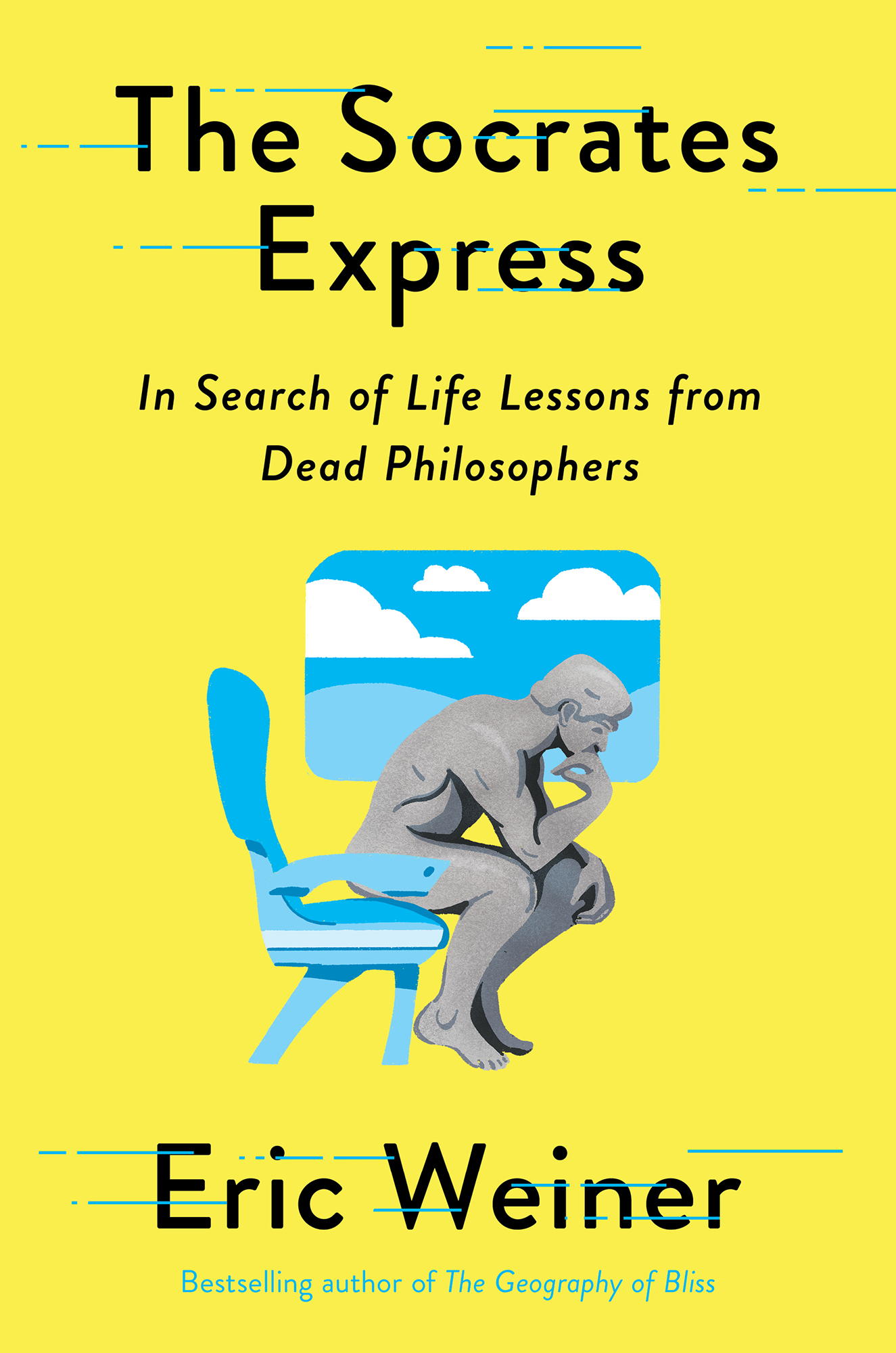

For Sharon
Sooner or later, life makes philosophers of us all.
MAURICE RISELING
We are hungry. We eat and eat and eat some more, yet still we are hungry.
Sometimes we experience the hunger as a faint presence; other times, when the world is upended and fear roams unchecked, the hunger swells, and threatens to consume us.
We reach for our smartphones. With a swipe of a finger, we can access all human knowledge: from ancient Egypt to quantum physics. We gobble it up, but still we are hungry.
What is this hunger that cannot be sated? We dont want what we think we want. We think we want information and knowledge. We do not. We want wisdom. Theres a difference. Information is a jumble of facts, knowledge a more organized jumble. Wisdom untangles the facts, makes sense of them, and, crucially, suggests how best to use them. As the British musician Miles Kington said: Knowledge is knowing that a tomato is a fruit. Wisdom is not putting it in a fruit salad. Knowledge knows. Wisdom sees.
The difference between knowledge and wisdom is one of kind, not degree. Greater knowledge does not necessarily translate into greater wisdom, and in fact can make us less wise. We can know too much, and we can mis-know.
Knowledge is something you possess. Wisdom is something you do. It is a skill and, like all skills, one you can learn. But it requires effort. Expecting to acquire wisdom by luck is like expecting to learn to play the violin by luck.
Yet that is essentially what we do. We stumble through life, hoping to pick up scraps of wisdom here and there. In the meantime, were confused. We mistake the urgent for the important, the verbose for the thoughtful, the popular for the good. We are, as one contemporary philosopher puts it, misliving.
I am hungry, toomore than most, I suspect, owing to a persistent melancholy that has shadowed me for as long as I can remember. Over the years, Ive tried various means of satisfying the hunger: religion, psychotherapy, self-help books, travel, and a brief, and ill-fated, experiment with psychedelic mushrooms. Each method slaked the hunger, but never fully nor for long.
Then, one Saturday morning, I ventured to the underworld: my basement. Thats where I quarantine books deemed unfit for the living room. There, amid titles such as The Gas We Pass and Personal Finance for Dummies, I unearthed Will Durants 1926 book, The Story of Philosophy. It had real heft and, when I opened the cover, emitted an actual cloud of dust. I wiped it clean and began to read.
Durants words elicited no thunderclap of revelation, no road-to-Damascus moment. Something kept me reading, though. It was not so much the ideas embedded in the book as the passion with which they were presented. Durant was clearly a man in love, but with whom? With what?
Philosopher, from the Greek philosophos, means lover of wisdom. The definition says nothing about possessing wisdom any more than the Declaration of Independence says anything about obtaining happiness. You can love something you dont possess, and never will. It is the pursuit that matters.
As I write these words, I am on a train. I am somewhere in North Carolina, or maybe South Carolina, Im not sure. On a train, its easy to lose track of place, and of time, too.
I love trains. More precisely, I love riding trains. I am no foamera rail enthusiast who froths at the sight of, say, an SD45 diesel-electric locomotive. I could not care less about tonnage ratings or track gauges. I love the experience: that rare combination of expansiveness and coziness only travel by train provides.
There is something amniotic about the inside of a train. The toasty temperature, the warm light. Trains transport me to a happier, preconscious state. A time before 1040 forms and college tuition savings and dental plans and traffic. A time before the Kardashians.
My mother-in-law is suffering from late-stage Parkinsons. It is a cruel disease, robbing her of abilities and memories. She has forgotten much. Yet she retains vivid recollections of childhood train rides in upstate New York. Albany to Corning to Rochester, then back to Albany. The sights and sounds and smells flood back as if they happened yesterday. Theres something about a train that stays with us.
Philosophy and trains pair well. I can think on a train. I cannot think on a bus. Not even a little. I suspect it has something to do with the different sensations, or perhaps its associative: buses remind me of childhood trips to school and camp, places I didnt want to go. Trains take me where I want to go, and do so at the speed of thought.
Yet both philosophy and trains possess a certain mustiness: once-vital parts of our lives reduced to quaint anachronisms. Today few people take the train if they can help it, and no one studies philosophy if their parents can help it. Philosophy, like riding trains, is something people did before they knew better.
I subscribe to a magazine called Philosophy Now. It arrives every other month in a brown manila envelope, like pornography. One recent headline read Is the World an Illusion? Another asked: Is the True the Same as the Truth? When I read these to my wife, she rolled her eyes. For her, like many people, articles like these epitomize all that is wrong with philosophy. It asks absurd, unknowable questions. Only in a dictionary do the words philosophy and practical appear in proximity.
Technology seduces us into believing philosophy no longer matters. Who needs Aristotle when we have algorithms? Digital technology so excels at answering lifes smaller questionsWhere can I find the best burrito in Boise? What is the fastest route to the office?we assume its good at the big ones, too. It is not. Siri may shine at finding that burrito joint, but ask her how best to enjoy it and she will draw a blank.
Or consider a train journey. Technology, and its overlord, science, can tell you the velocity of the train, its weight and mass, and why the onboard Wi-Fi keeps cutting out. Science cannot tell you whether you should take the train to your high school reunion, or to visit Uncle Carl, who always annoyed you but is now gravely ill. Science cannot tell you whether its ethically acceptable to cause bodily harm to the screaming child kicking your seat. Science cannot tell you whether the view outside your window is beautiful or clichd. Philosophy cannot either, not definitively, but it can help you see the world through a different lens, and there is great value in that.
At my local bookstore, I notice two sections: Philosophy and, adjacent to it, Self Transformation. In the Barnes & Noble of ancient Athens, these two sections would be one. Philosophy was self-transformation. Philosophy was practical. Philosophy was therapy. Medicine for the soul.
Philosophy is therapeutic but not the way a hot-stone massage is therapeutic. Philosophy is not easy. It is not nice. It is not palliative. Less spa than gym.
The French philosopher Maurice Merleau-Ponty called philosophy radical reflection. I like how he imbues philosophy with the edginess and whiff of danger it deserves. Philosophers once captured the worlds imagination. They were heroic. They were willing to die for their philosophy, and some, like Socrates, did. Now all that is heroic about philosophy is the epic struggle for academic tenure.
Most schools today dont teach philosophy. They teach
Font size:
Interval:
Bookmark:
Similar books «The Socrates Express: In Search of Life Lessons from Dead Philosophers»
Look at similar books to The Socrates Express: In Search of Life Lessons from Dead Philosophers. We have selected literature similar in name and meaning in the hope of providing readers with more options to find new, interesting, not yet read works.
Discussion, reviews of the book The Socrates Express: In Search of Life Lessons from Dead Philosophers and just readers' own opinions. Leave your comments, write what you think about the work, its meaning or the main characters. Specify what exactly you liked and what you didn't like, and why you think so.

